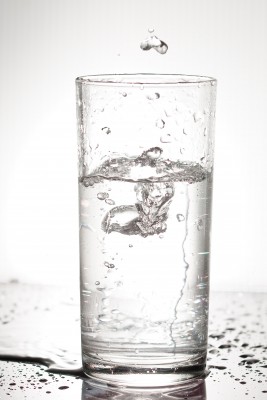 Guest post
Guest post
We all know that we should probably be upping our water intake. 2 litres a day has become something of a health mantra and, following the indulgences of the festive season, “drink more water” is likely to be one of the main players on the New Year’s resolutions list. But do we fully understand why water is so important to our health and well being, and what the impacts are of not getting enough?
Many of us wait until we are thirsty before we reach for the bottle of water. However, evidence suggests that our thirst sensation doesn’t actually occur until we are 1- 2% dehydrated, and by this time it may already be having a negative impact on how our body and mind perform.
On top of this, with age our thirst sensations start to diminish, meaning that we may not register we are thirsty until having reached a significant level of dehydration . It is also common to mistake the symptoms of thirst for hunger, leading us to eat rather than rehydrate.
Some of the most apparent signs of dehydration include thirst, dry mouth and dark-coloured urine. However, the consequences of even low levels of dehydration can be much more widespread.
Energy & Mood
Studies have shown that even mild dehydration can have a significant impact on an individual’s mood, energy levels and mental performance. Researchers at the University of Connecticut found that mild dehydration in study participants led to alterations in mood, headaches, fatigue and difficulty concentrating. These findings, published in The Journal of Nutrition, were found to be more pronounced in women than in men; and occurred both at rest and during exercise.
Reduced Endurance & Muscle Fatigue
Dehydration can significantly impact on athletic performance, and for this reason it is important to be well hydrated before you go to the gym, and not just waiting until during or after exercise. Under relatively mild levels of dehydration, individuals participating in rigorous physical activity were shown to display reduced endurance, increased fatigue and reduced motivation. Muscle soreness, and longer recovery times, can also occur as a result of not drinking enough water before and during exercise.
Water Retention
Whilst those suffering from water retention may believe drinking water will exacerbate their condition, conversely the opposite is actually true. Water is vital in the body for the efficient functioning of all our body systems including our cardiovascular, nervous and digestive systems. If fluid intake is insufficient, the body will compensate by holding onto water in its cells, resulting in the bloating and discomfort associated with water retention.
Digestive Problems
Our bodies need water to produce the digestive juices that aid the digestive process. Without these, a variety of digestive problems can result including gas, bloating, discomfort and nausea. Water is also essential to keep things flowing through the gastrointestinal tract. When you don’t get enough fluid, the body will compensate by pulling water from stools to maintain hydration, resulting in constipation.
So how we can increase our water intake?
Drinking pure, filtered water throughout the course of the day is beyond doubt the best way to stay well hydrated. To make it more interesting try adding slices of lime, lemon, orange or grapefruit. Soups, especially broths, have a high water content and are another great option during the winter months.
It is also important to know that hydration is not just about water. It takes a precise balance of minerals, electrolytes, and essential fatty acids for water to perform its multitude of functions in the body. A diet high in mineral-rich fruits & vegetables (cucumber, lettuce, celery, radishes, tomatoes, peppers, spinach and watermelon are all at least 90% water), and foods containing essential fatty acids, such as fish oil, walnuts and flax seeds are therefore just as important as that bottle of Evian on your desk!
Naomi Mead is a trained nutritional therapist and specializes in weight management, female health, sports nutrition and digestive disorders. She has been accredited at the renowned Institute of Optimum Nutrition. Food and its therapeutic powers are something Naomi is very passionate about. She also contributes on Nutrition Expert and Food First.


Leave a Reply